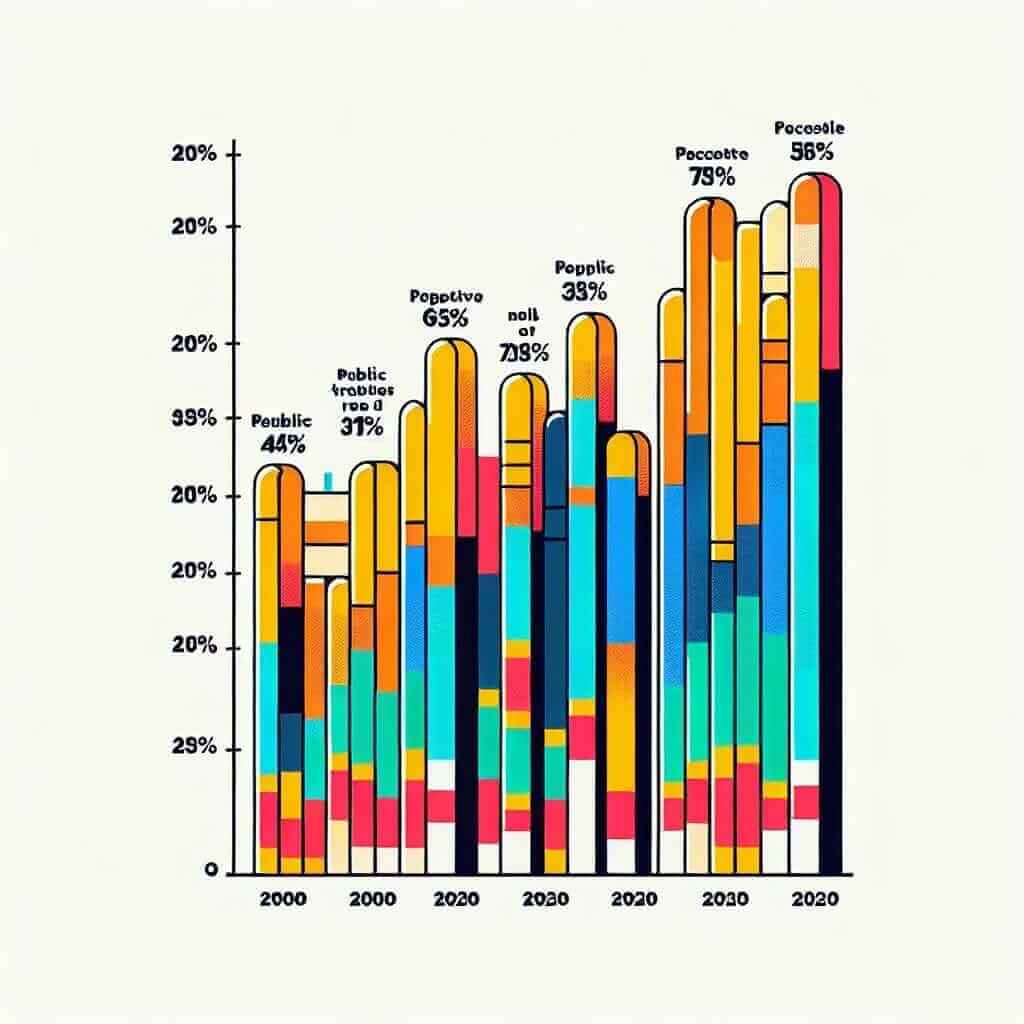Mastering the art of academic writing is essential for achieving a high score on the IELTS. As an IELTS instructor with over 20 years of experience, I’ve witnessed countless students transform their writing skills and excel in this section. This comprehensive guide will provide you with invaluable insights and practical strategies to elevate your IELTS Academic Writing from good to great.
Understanding IELTS Academic Writing
The IELTS Academic Writing test assesses your ability to present complex ideas in a clear, logical, and grammatically accurate manner. It consists of two tasks:
Task 1: You’ll be presented with a visual representation of data (a graph, chart, table, or diagram) and asked to summarize, describe, or explain the information in your own words (minimum 150 words).
Task 2: You’ll be given an essay prompt requiring you to provide your opinion, discuss a point of view, or analyze a problem and propose solutions (minimum 250 words).
Effective Strategies to Enhance Your Writing Skills
1. Grasp the Assessment Criteria
Familiarize yourself thoroughly with the four key assessment criteria:
- Task Achievement: Addressing all aspects of the task, presenting a clear position, and supporting your ideas with relevant examples.
- Coherence and Cohesion: Organizing your writing logically, using cohesive devices (linking words and phrases) to ensure a smooth flow of ideas.
- Lexical Resource: Utilizing a wide range of vocabulary accurately and appropriately.
- Grammatical Range and Accuracy: Demonstrating control over a variety of sentence structures and using grammar correctly.
2. Expand Your Vocabulary
A rich vocabulary is fundamental to effective academic writing. Make it a habit to learn new words daily, focusing on synonyms, academic phrases, and topic-specific vocabulary.
Example: Instead of repeatedly using “important,” explore alternatives like “crucial,” “significant,” “pivotal,” or “paramount.”
3. Master Grammar and Sentence Structure
Grammatical errors can significantly impact your score. Review essential grammar rules, particularly those related to tenses, articles, prepositions, and subject-verb agreement. Practice writing complex sentences, but always prioritize clarity and accuracy.
4. Plan Your Writing
Don’t underestimate the power of planning. Before you start writing, take a few minutes to analyze the task, brainstorm ideas, and create a brief outline. This will help you organize your thoughts and structure your writing effectively.
5. Practice Regularly and Seek Feedback
Consistent practice is crucial. Write essays and Task 1 responses on a variety of topics, using past IELTS exam questions. Seek feedback from experienced IELTS instructors or language partners to identify areas for improvement.
Illustrative Examples from Real IELTS Exams
Let’s examine how these strategies can be applied to actual IELTS writing prompts:
Task 1 Example: You are given a bar graph showing the percentage of people using public transportation in four different cities from 2000 to 2020.
Key Tips:
- Start with an introductory sentence paraphrasing the information presented in the graph.
- Focus on the most significant trends or patterns, supporting your observations with data from the graph.
- Use appropriate vocabulary to describe trends (e.g., “sharp increase,” “gradual decline,” “remained stable”).

Task 2 Example: Some people believe that the government should invest heavily in public transportation to reduce traffic congestion. Others argue that it is better to invest in building more roads. Discuss both views and give your own opinion.
Key Tips:
- Clearly state both sides of the argument in separate paragraphs.
- Present your opinion with supporting reasons and examples.
- Use linking words and phrases (e.g., “however,” “on the other hand,” “in conclusion”) to ensure a smooth flow of ideas.
Expert Tips for IELTS Writing Success
- Time Management is Key: Allocate your time wisely between Task 1 and Task 2.
- Proofread Carefully: Reserve a few minutes at the end to review your writing for any errors in grammar, spelling, or punctuation.
- Don’t Memorize Answers: Focus on developing your writing skills rather than memorizing pre-written responses.
- Read Extensively: Regularly read academic articles, newspapers, and books to expand your vocabulary and improve your understanding of grammar and sentence structure.
Conclusion
Improving your IELTS Academic Writing skills is a journey that requires dedication and consistent effort. By following the strategies outlined in this guide, you can enhance your vocabulary, grammar, and overall writing proficiency, ultimately achieving your desired IELTS score. Remember, the key to success lies in understanding the assessment criteria, planning your writing, practicing diligently, and seeking constructive feedback. Good luck with your IELTS preparation!